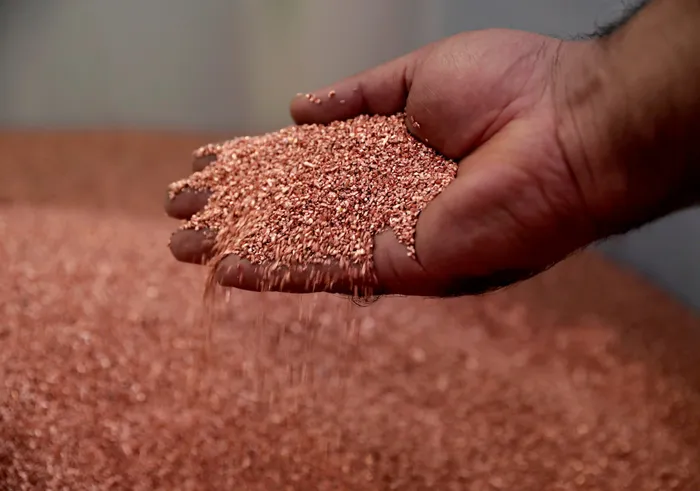Scrap metal ban is hampering industry, says Metal Recyclers Association

Copper granules. The Department of Trade and Industry in November imposed a six-month ban on the export of copper and copper-alloy scrap in a bid to stem the theft of copper. File picture:ANA
The extension of the ban on the export of scrap metal has created significant barriers to growth and created a lot of uncertainty, according to the Metal Recyclers Association.
In its submissions to the International Trade Administration Commission (Itac) on why the ban should not be extended for another nine months, the MRA said disinvestment and pessimism in the industry were at highs and there had been reckless and intimidatory policing on its members, who were already highly regulated through membership and the second-hand goods act.
The Department of Trade and Industry in November imposed a six-month ban on the export of copper and copper-alloy scrap, as well as most ferrous scrap as part of the first phase of a three-phase intervention designed to combat the rampant theft of metals used in public infrastructure.
The economic damage of ongoing theft and vandalism has been estimated at R47 billion and has amplified both load shedding and the disruption of freight and passenger rail services.
The MRA, through Rachelle Bezuidenhout at its secretariat, has told Itac that any reduction in incidents of theft since November 30, 2022 are due to increased policing by SAPS and dedicated investigative units, not the export ban, which continues to hamper legitimate metals trade.
It said further exemptions for grades that were not related to infrastructure theft needed to be considered.
"In the absence of the domestic market's linkage to the global market (the export ban), the continuation of PPS (purchasing power standard) for market pricing purposes is essential to provide market stability,“ the MRA said.
The most probable outcome would be further business closures, consolidation and the creation of a monopoly, which would not be in the interest of the entire value chain, it said.
State Passenger logistics entity Prasa said yesterday that it too would step up security measures including boots on the ground, drones technology and hi-tech cameras to monitor its infrastructure against vandalism and theft.
CEO Hishaam Emeran said like Transnet, Prasa was now going on a drive to acquire more diesel locomotives for its fleet because the destruction of copper cables along the rails and corridors had made electric trains impractical.
He said the challenge Prasa faced was that it could not secure enough diesel locomotives and had hit a brick wall against Transnet, who too are gearing up their fleet with more diesel engines.
Transnet CEO Portia Derby recently said the ban on the export of scrap metal initiated by the government to curb the theft of copper cables and other grid infrastructure had inadvertently created cartels.
Appearing earlier this month before the Parliamentary committee on public enterprises and communications, Derby said subsequent to the just elapsed six-month ban, which is under review to permanent status, Transnet being given a list of takers to invite for the sale of scrap through action had found it created a structure that was “like a cartel”.
This, as authorised buyers, including foundries and mini-mills seemed to have a conversation among themselves.In a Gazette last month, Itac invited comment on the proposal to prohibit the export of certain ferrous and non-ferrous waste for a further period of nine months.
The United National Transport Union (Untu) has weighed in against the ban, saying it had not seen any significant impact in curbing the theft of rail infrastructure material vandalism and theft.
“The legal trading of scrap metal also seems to have been affected negatively and some people as we know actually make a living out of the selling of legal scrap metal,” it said.
BUSINESS REPORT